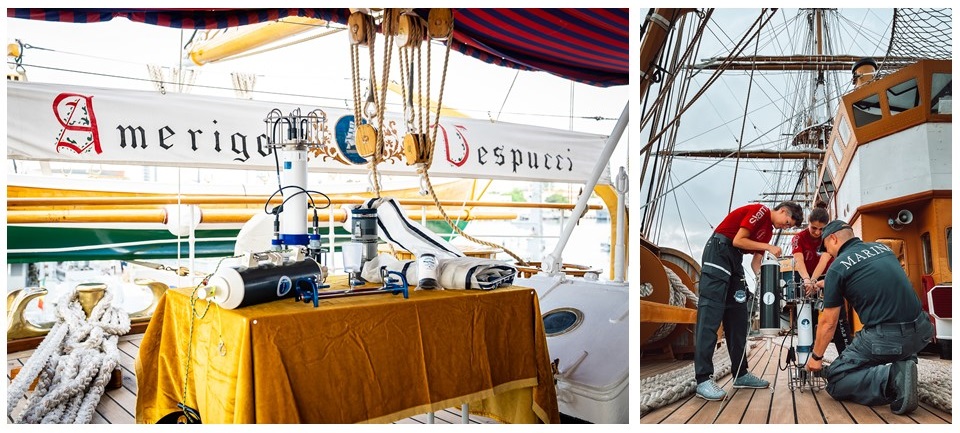Progress report for
Sea care: a model of partnership investigating the global ocean to strengthen public health

Achievement at a glance
The Sea-Care project, a collaboration between the National Institute of Health (ISS), the Italian Navy, during the first two years of activity, was focused on the establishment of standard sampling procedures, their validation and application in many sampling campaigns in the world's seas (Mediterranean, Red Sea and Persian Gulf) and oceans (Atlantic, Indian, Artic). For the research activities, the collaboration and support of the Italian Navy and other institutional partners have been crucial to achieve the key goals.Sampling sites were identified by studying the movement of ocean currents and anthropogenic impact sources, following Navy cruises around the world. Sampling protocols were tested in a variety of conditions and on ships not designed for oceanographic research. At the same time, in each of the laboratories involved, with 12 operational units and more than 40 researchers, analytical procedures were developed to analyse target compounds (organic and inorganic compounds, microplastics, viruses and bacteria), including pioneering approaches (untargeted analysis and fingerprinting of contaminants).
The development and publication of scientific papers in international peer-reviewed journals has also begun, as well as an important dissemination activity to the general public through forums, seminars, conferences and television appearances.
In detail, the achievements of these years of on-board activities are summarised as follows:
2022: June 2022-January 2023:
- 4 missions
- 4 different ships: Caio Duilio, Amerigo Vespucci, Alliance and Paolo Thaon di Revel.
- 2 representative studies
- 43 sampling sites
- 1,600 samples
- 16,000 nautical miles sailed
- 21 researchers on board
- 8 analytical methods
- 10 sampling methods developed
2023: February-December 2023:
- 2 missions
- 2 ships: Amerigo Vespucci and Francesco Morosini
- 22 sampling sites
- 680 samples
- 28,000 nautical miles sailed
- 6 researchers on board
Challenges faced in implementation
Several challenges were encountered during the pre-development phase, such as experimental design, logistics, operator training and fitting procedures on board non-oceanographic vessels. These challenges were successfully addressed and resolved through the collaborative efforts of all institutions involved.Next Steps
Sea Care will continue until 2025 with further sampling campaigns around the world, reaching remote areas that have not yet been surveyed. The model is designed to collect a large amount of comparable data to assess an anthropic pollution index capable of describing the prospects of impact on human health in different marine areas of the planet, using the same analytical methods of choice. Following the project ratio, another goal will be to disseminate the acquired knowledge and the project itself in national and international scenarios.Beneficiaries
Data are collected and processed for the public health and scientific communities, multidisciplinary experts, and scientists and non-academics concerned with marine and human health. Therefore, several communication initiatives are underway and will continue in the future to integrate knowledge gaps and scientific uncertainties associated with limited scale measurements of globally significant phenomena.
Actions
Sea Care is an ongoing project and is already providing useful data on the distribution of chemical contaminants and the biodiversity of environmental microorganisms to link climate change and human impacts to ocean health, human health and ultimately the planetary health.The project activities are briefly summarised below:
- Coordination activities with the Italian Navy
- Selection of interesting sampling sites (anthropic and climatic impacts)
- On-board sampling and research activities
- Development and analysis of laboratory analyses
- Spreading of acquired knowledge to the scientific and academic community and to the general public.
